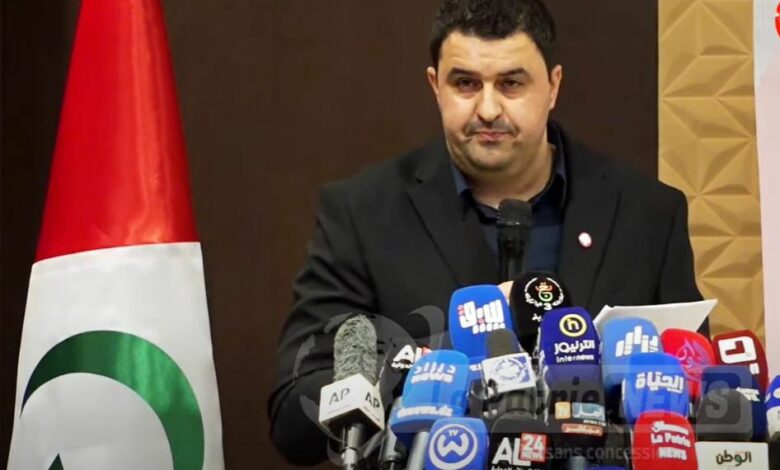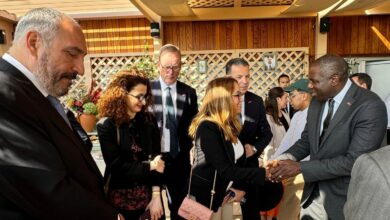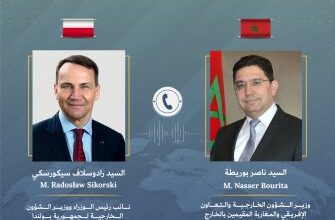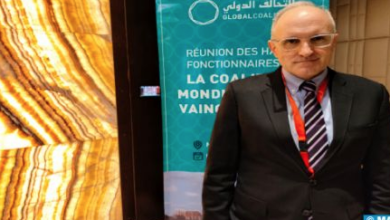Algeria Recycles Its Failure: From Morocco’s Sahara to the Rif… A Floundering Regime Exporting Its Internal Crises
Algeria Recycles Its Failure: From Morocco’s Sahara to the Rif… A Floundering Regime Exporting Its Internal Crises

ALDAR – Editorial / Iman Alaoui
Once again, the Algerian regime has turned to its favorite game: interfering in Morocco’s internal affairs. This time, however, through a desperate attempt to exploit the Rif region—after its separatist wager in the Moroccan Sahara collapsed spectacularly both regionally and internationally.
On July 21st, Algeria hosted what it described as a “delegation of representatives from the Rif” in a kitschy protocol ceremony, aimed at deceiving both domestic and international audiences into believing it was “active” in supporting minority rights. In reality, it’s nothing more than a beleaguered regime seeking a new stage to vent its geopolitical grudges against Morocco—a country steadily reinforcing its sovereignty and development from north to south.
For over five decades, Algeria has failed to impose a fictitious entity in the Moroccan Sahara, despite the vast financial, political, and media support it provided to the Polisario Front. As international recognition of Morocco’s sovereignty over the Sahara grows, and support for the Autonomy Initiative broadens, the Algerian regime finds itself having lost its strategic bet. Now, in a desperate move, it turns to the Rif as a “replacement card.”
The irony is that Algeria is simply recycling the same tired script: fabricate a “cause,” manufacture “leaders,” and cloak the scheme in human rights rhetoric—all for an underlying political agenda. The result is always the same: spectacular failure, diplomatic isolation, and a steady erosion of credibility.
What Algeria’s leadership refuses to acknowledge is that its issue with Morocco is no longer about borders or a fabricated dispute—it has become an obsessive fixation with its western neighbor. Every Moroccan success is seen in Algeria as a threat, and every Moroccan display of stability is interpreted as a stark contrast to the Algerian regime’s internal failures.
Algeria’s institutions have become captive to a “confrontation with Morocco” mindset, even at the cost of ignoring the country’s own suffocating internal crises: high unemployment, a plummeting national currency, and mounting public discontent. Ironically, this same regime that claims to defend the “rights of the Riffians” hasn’t even managed to build a viable development model within its own borders—especially in its neglected south and its oppressed Kabylie region.
The Moroccan Rif is not a mailbox for Algerian political messaging. It is an inseparable part of Morocco’s geography and national identity. Anyone familiar with history knows that this region, which once fiercely resisted colonialism, cannot be reduced to a pawn in the hands of a regime seeking to fracture Morocco’s unity.
For years, Morocco has launched major development projects in its northern regions, bolstering infrastructure and public services, while fostering dialogue, accountability, and inclusive development—all guided by a vision of unity and territorial equity.
What Algeria is doing today is the reckless behavior of a regime that has nothing to offer its people, and so resorts to exporting its crises through exposed attempts to sow discord and destabilize neighboring countries. But Morocco, which has withstood far greater challenges, will not be dragged into this mire. It has moved past the stage of defending itself to one of building strength, legitimacy, and national cohesion.
If the Algerian regime believes it can ignite a new fire in the Rif after its flame was extinguished in Tindouf, it is once again miscalculating. Moroccans—from the Rif to the Sahara—are united in rejecting such folly and confronting every attempt to sow confusion, no matter its origin.
Morocco is in its Sahara, the Rif is in its Morocco, and Algeria remains lost in a maze with no exit.





